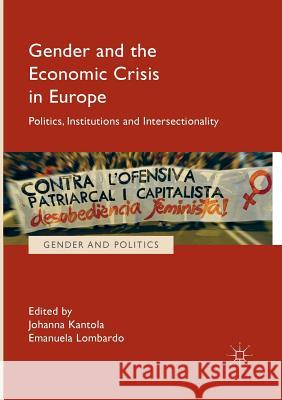Gender and the Economic Crisis in Europe: Politics, Institutions and Intersectionality » książka
topmenu
Gender and the Economic Crisis in Europe: Politics, Institutions and Intersectionality
ISBN-13: 9783319844909 / Angielski / Miękka / 2018 / 282 str.
Kategorie BISAC:
Wydawca:
Palgrave MacMillan
Seria wydawnicza:
Język:
Angielski
ISBN-13:
9783319844909
Rok wydania:
2018
Wydanie:
Softcover Repri
Ilość stron:
282
Waga:
0.39 kg
Wymiary:
21.0 x 14.8
Oprawa:
Miękka
Wolumenów:
01
Dodatkowe informacje:
Wydanie ilustrowane











